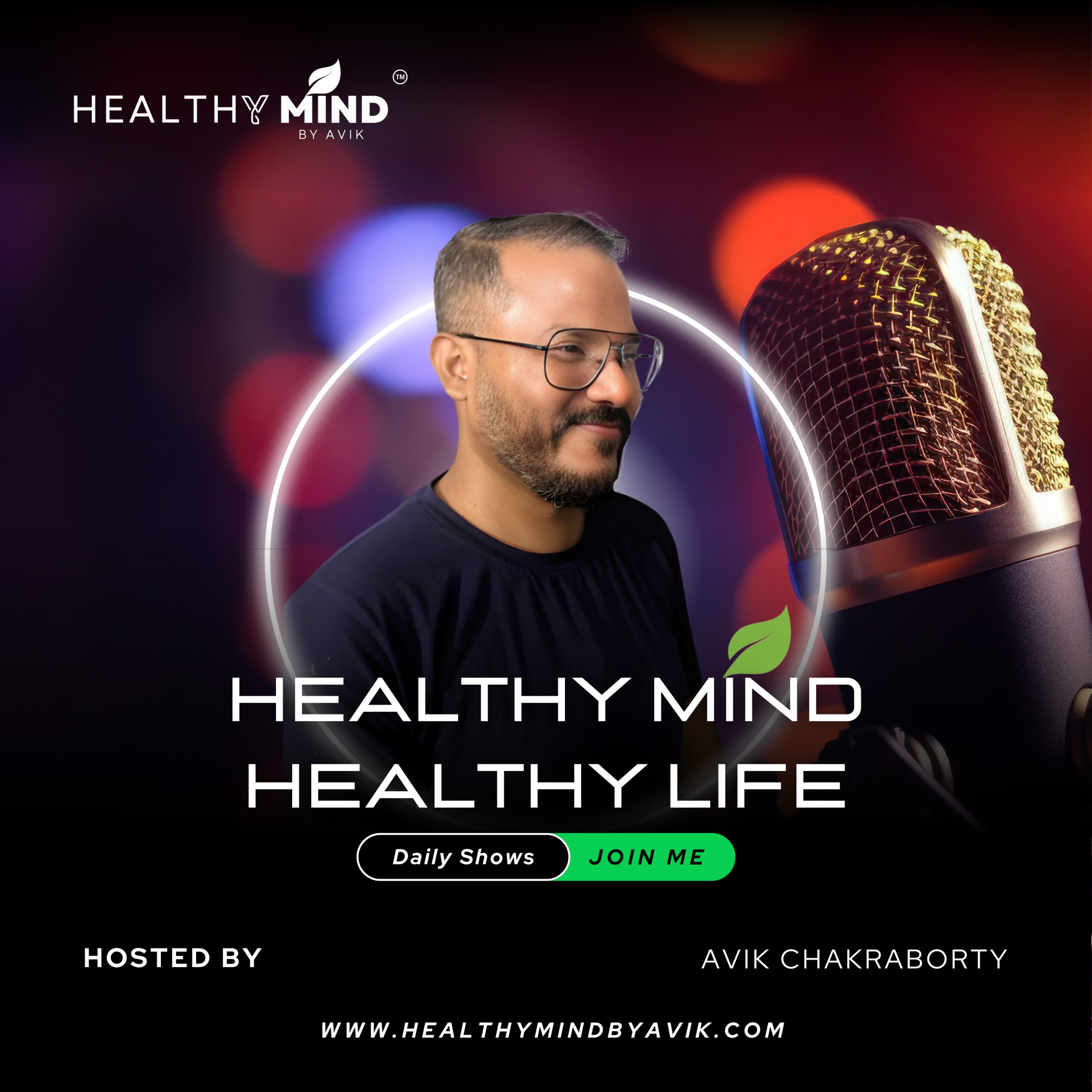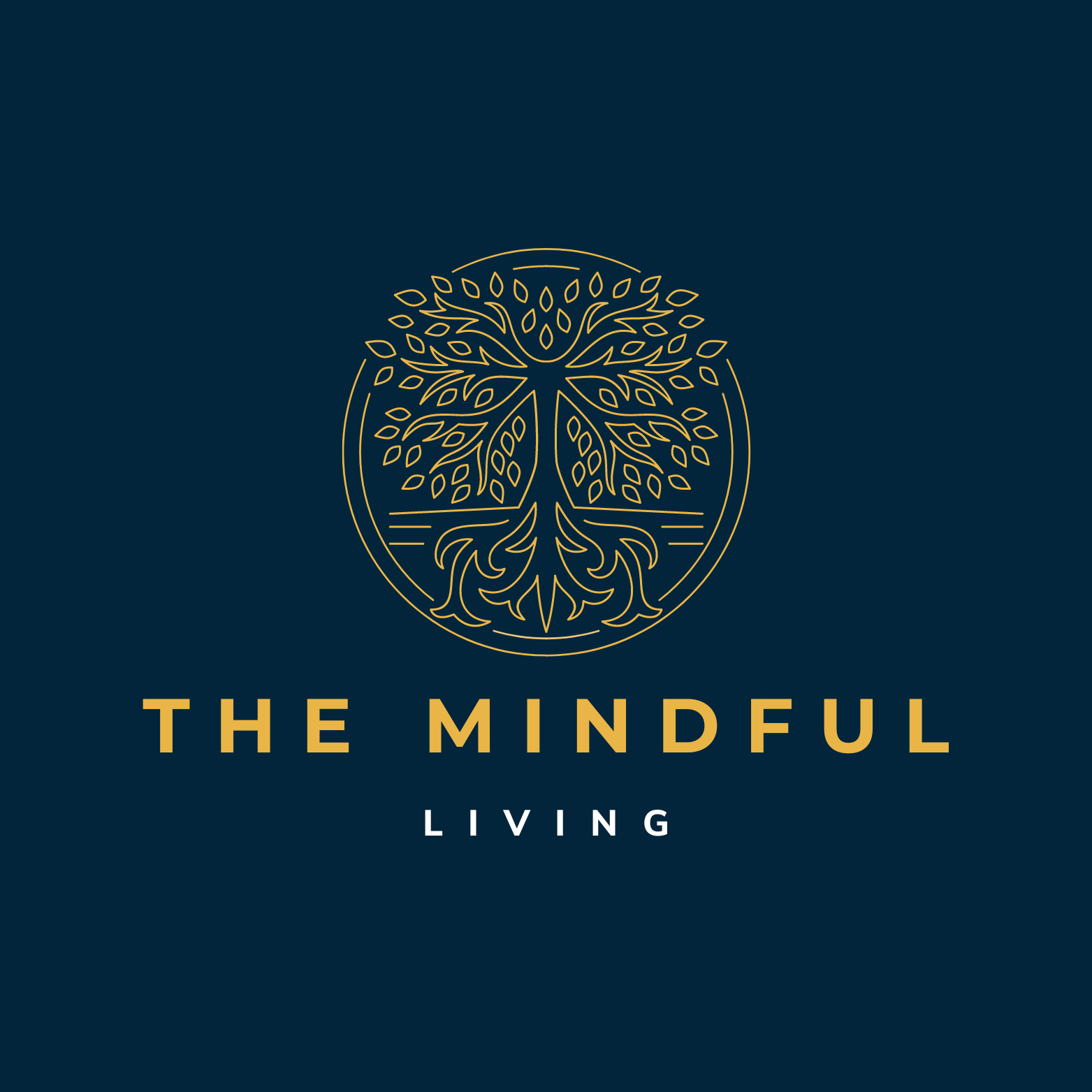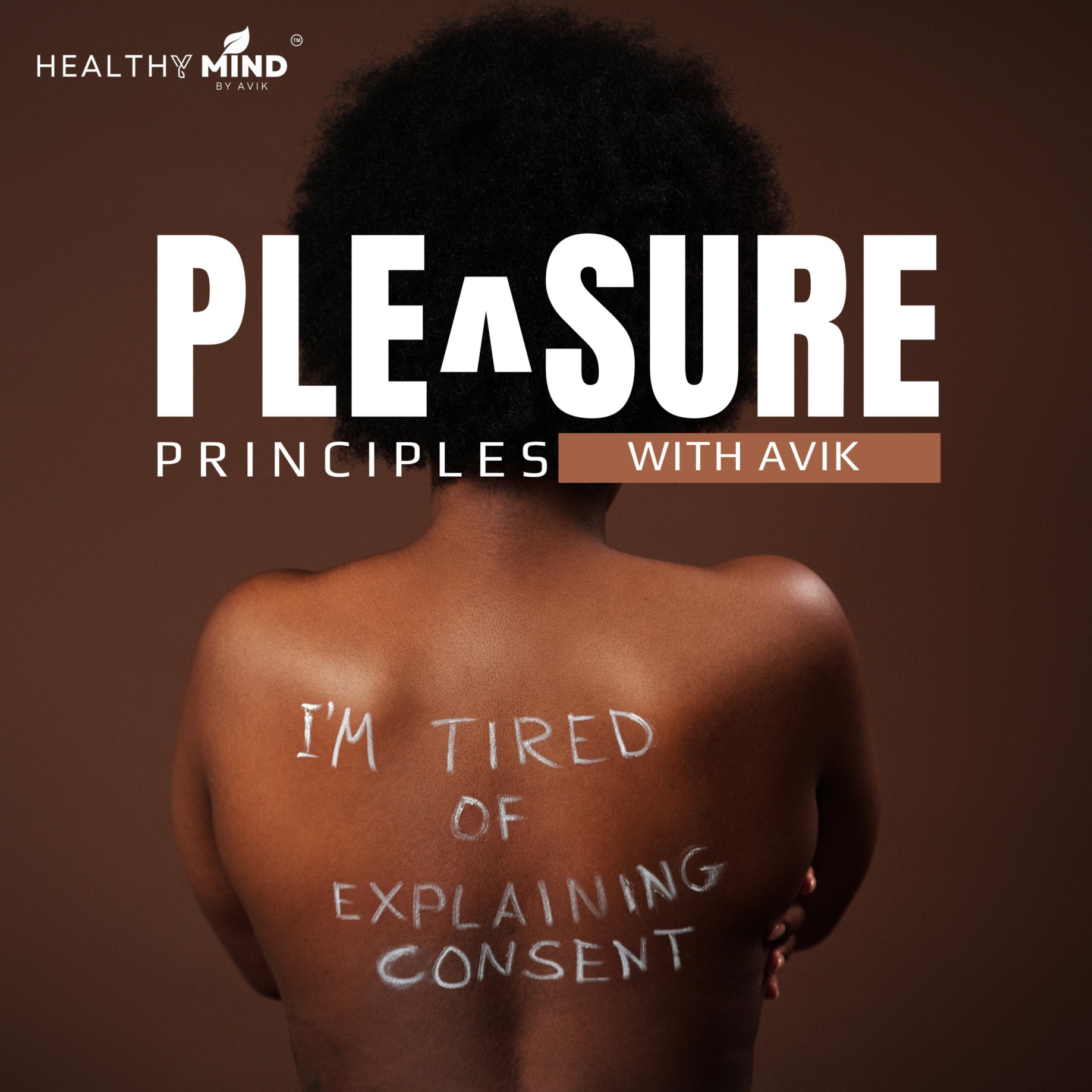
Mind Over Masculinity
Let’s stop asking men to "man up" and start asking how we can lift them up. After all, mental health is not just a women’s issue or a men’s issue—it’s a human issue.
Take the first step today. Talk, listen, and advocate. Together, we can make a difference.
Mind Over Masculinity
Play as Medicine: Healing Beyond Surgery - Zander Phelps
What happens when we throw out society's rulebook on healing? Zander Phelps discovered something remarkable when faced with a hernia diagnosis – the power of play as medicine.
Most would rush to surgery when diagnosed with an inguinal hernia, but Zander Phelps took a radically different path. Having spent a decade traveling the world with just a backpack and a hacky sack, he'd discovered that play wasn't just a fun pastime – it was the universal language of love and potentially a powerful healing modality. Facing a condition that typically requires surgical intervention, Zander made the bold decision to heal naturally rather than accepting a procedure that would limit his ability to move freely.
His healing journey combined ancient wisdom with modern understanding of the body's self-regenerative capabilities. From castor oil packs with myrrh oil to specialized vacuum breathing exercises, from aloe vera treatments to laughter therapy – Zander created a comprehensive approach that honored his body's intrinsic healing abilities. The results challenged conventional medical wisdom and opened up profound questions about our assumptions regarding recovery and health.
Beyond his personal healing story, our conversation explores a deeper cultural crisis – our technological disconnection from physical play and genuine human interaction. "I see kids with their faces in phones all day and it's distressing," Zander notes, contrasting today's screen-focused childhood with the joy of neighborhood outdoor play he experienced growing up. We discuss the emerging "digital de
Automate Social Media Post
Make Short Clips From Long Videos
Loved by 4M+ marketers, entrepreneurs & creators
Create and translate videos
Create and translate videos with HeyGen's AI Video Generator
Buzzsprout Podcasting
Disclaimer: This post contains affiliate links. If you make a purchase, I may receive a commission at no extra cost to you.
-----------------------------------------------------------------------------------------------------------------
Want to be a guest on Mind Over Masculinity? Send me a message.
-----------------------------------------------------------------------------------------------------------------
Stay Tuned And Follow Us!
- YouTube - https://www.youtube.com/@healthymind-healthylife
- Instagram - https://www.instagram.com/podhealth.club/
- Threads - https://www.threads.net/@podhealth.club
- Facebook - https://www.facebook.com/podcast.healthymind
- LinkedIn - https://www.linkedin.com/in/newandnew/
Welcome back to another episode of Mind Over Masculinity, the podcast where we question, challenge and rewrite the stories that we have been told about our bodies, our health and even how we show up in the world. And today we are throwing out the rule book on healing, like we have all conditioned to believe that when something breaks our body, our mindset, our spirit, the only answer is the path society lays out for us Surgery, medication, tough it out, accept the decline, decline. You are man. So all these things right. But what if the answer was something completely different? What if healing wasn't about fixing ourselves, but, uh, but about rediscovering something that we have lost? Right Great to think right. So my guest today is Xander, xander Phelps. So welcome to the show, xander.
Speaker 2:Thank you, Yavik.
Speaker 1:Great to be here, lovely, lovely. So, xander, like before we start, I'll quickly love to introduce you to all of our listeners. Dear listeners, Xander, who has spent 10 years traveling the world with nothing but a pack on his back and a hacky stack in his pocket, along the way, he discovered something simple but incredibly powerful Play is the universal language of love. That's amazing, right? So Xander believes that play isn't just a fun distraction, it's the antidote to so much of what's hurting us, like disconnection, stress, even chronic pain. And he doesn't just talk about it, he leaves it. But here's where it gets wild, like when faced with uh hania, something that most people would rush into surgery for. But zander did something different. He healed it on his own, because surgery would have taken away his ability to do the thing that fools him most play. How did he do it? What does play have to do with the healing, and why is our world getting this so wrong? Let's dive into this and open the forum. So welcome to the show again.
Speaker 2:Thank you, great to be here.
Speaker 1:So, zander, if you can tell us that moment you realized that you had a hernia and what was going through your mind, that's exactly this.
Speaker 2:Oh shit, because I was jumping on a trampoline with my son, um, just goofing around, and I did a large jump and I felt immediate pain on my left side and, um, you know, a sharp pain. And so I, I lifted up my shirt and I looked down and there was a bulge. It was an inguinal hernia. So, um, you know, just to, just to, you know, lower lower core, you know lower stomach area, this uh, a big size, uh, chunk of flesh was hanging out and uh, I, I, I, immediately, my immediate thought was, you know, was oh no, um, this is not good, like like I'm, this is not good, like like I'm, I, I, I couldn't get up, jump around anymore, of course, on the trampoline, but then I, I immediately went down the path of I, I'm, this is going to mess me up, this is going to be something I'm going to have to deal with and prevent me from, from from doing the thing I love to do.
Speaker 2:Literally, you know I was, you know I was living on kawaii and I was known every weekend to go down to the farmer's market and play. Um, I went to schools and I played, uh, showed the kids about playing and stuff, and so I knew it was going to cut me away from that and I, I it. Uh. It was one of those, those moments of oh no, I, what am I gonna do about this?
Speaker 1:I mean, uh like, what was the first thing you did, like, were you tempted to follow the traditional route, or what?
Speaker 2:yes, I, I went to, uh, one of my doctor friends, um, and I showed him it and he's like, yeah, that's a hernia. Um, you have, you have a. You know, you have a couple of options. If it's not hurting you, you can just live with it and you can check to see how it progresses. Or, um, you can do the surgery and, um, you know, he's on kawaii, we don't have, but there was, you know, really mainly one hospital and they just did the mesh surgery. So I, what I did is I initially just started researching actually, what the mess mesh surgery would do and I knew almost pretty quickly I did not want to get that surgery done.
Speaker 2:Right, it's, it's pretty invasive, uh, you're sticking this foreign substance in your body and, um, your body reacts to it in a very negative way. I didn't want to do that. So I started researching other ways and I found a couple of doctors, one in Canada, that would do a steel thread that would just stay in your body and it wouldn't be the mesh but it would still be a steel substance in the body. And then I found a guy in Italy who would use your own tissue to, to, to sew it together and your body would eventually absorb the tissue. It was a much better way of doing it.
Speaker 2:So I actually had made plans to go to Italy to do that surgery, but I couldn't do it. It was, it was not I, um, my, uh, my son's mother was like you can't just leave and do that, so we're not going to. You can't do that. So I had to figure out another option, and the option was for me just to and do that. So we're not going to, you can't do that. So I had to figure out another option, and the option was for me just to heal it myself understood.
Speaker 1:Okay, yeah, like, and that that's something a lot of people can relate to, I believe, and uh, that that's thanks for sharing this. And, um, like, most people would hear that this is uh and immediately think that, ah, game over surgery or suffer, yeah, and to what made you question that?
Speaker 2:well, I have a background in in, uh, a massage therapist, uh, so I I've worked with a lot of people on how to, you know, heal the body and I, you know, I recognize that we can heal dramatically with the right mindset. It's, it's, it's pretty apparent that that humans, our body, has a natural ability to heal if we allow it to do that. Um, there's also the amazing stories about people going through cancer and going through the process of laughing a lot and that also helps heal the body. Laughter is is an amazing medicine. So I had hope that way. I figured that, you know, my body can heal if I just create the right environment for it, and I also knew that I had to do it. It wasn't even a the. The thought was, I'm going to try to heal it. If it takes longer, if in six months I do not have my body healed, then I'll get the surgery, but I'm going to give myself six months to just dive in and do everything I can to heal it.
Speaker 1:That's true, okay, yeah, everything I can to heal it. That's true, okay, yeah, and and like um, I mean, uh, how did you actually heal from this? I mean, what were the key things that made a difference?
Speaker 2:the, the physical and mental. Uh, for physical, I I focused on um. Ed Cayce, a famous healer guy, talked about the miracles of castor oil. So he has this castor oil pack treatment that he would do, where you put on castor oil into a wool pack and then you lay a plastic bag on top of that and then on top of that you put a heating pad. So castor oil is like the deepest penetrating oil as well, as it's a huge, it's a very lubricative I think that's the right word, but it's a great lubricative, lubricator, whatever it is. But so I did that and that also, I also added myrrh oil, because myrrh oil helps with uh blood simulation, uh circulation, as well as a pain reliever. So I put that, a couple of drops of myrrh on there, the castor oil pack, uh, the plastic bag and the heating pad. I would do that every day. Um, it just felt really good, it was, it was, uh, the heat really felt nice.
Speaker 2:And then after that I would do a self massage. So I'd rub around the hernia. I'd find the areas, um, on the outside of the hernia where I can, I can brush the tissue in and I try to just, you know, coax it to move together. I was also doing a visual. I was visualizing what it was doing for my body every time I was doing it. So that's another layer of helping it out. I did this exercise every day, called the vacuum breath, so it's a way you suck in, you push out all the air out of your lungs and you suck in your core and you work the muscles independently and you work the muscles independently. So there's a series of steps that you do to help gain that control of the core muscle area. This exercises your internal organs as well as helps the fascia readjust. So it's an amazingly powerful exercise. I still try and do them every day.
Speaker 2:And the third main thing I did was take aloe vera. So I would cut up, I would take a huge chunk of aloe vera, cut it into cubes, rinse it and then eat that and then use the leaf that I'd cut off. And I would, I would, I would rub that on the area as well. And aloea is just. It's an amazingly self-healing plant. Like if you cut off a leaf of aloe vera and you leave it, it will, even on the counter, it will even heal up itself. So it was one of those things I'm like this is just going to be another aspect of it. I'll take it internally, work it externally and put the most healing power I can into it externally and put the most healing power I can into it.
Speaker 2:And I did certain. I did certain, uh, a specific type of yoga exercise, uh, from. I had a great teacher on Kauai, he Kauai, who did um. She, she developed a new type of yoga technique which is extraordinary. And I did some acupuncture as well, but acupuncture was only a couple of times, so it's not a real big factor in the whole process. Um, and then just changed my diet up a lot. I liquefied my diet most of the time. I stayed away from any um meats, uh, just for harder to harder to digest. I stayed away from grains, breads, anything like that that was in nuts, anything that was challenging for my body to digest. I just cut out and started um, I tried to liquefy my diet as much as possible and the mental part too. The mental part too, was, was key to is thinking about it and trying to find ways to just uh, laugh a lot.
Speaker 1:I, I did try to laugh because that's a, that's a way of stimulating your whole body and creating the, the feel-good chemicals through your whole body yeah, so, like um, you have said that our world is losing a battle, and not just against physical decline, but against the technology sucking up our ability to connect with humans or as humans. So how do you see that playing out?
Speaker 2:well, yeah, right now, I mean, I see it a lot with my own son, you know he's he's at an age where he doesn't want to go outside much, he's, he'd rather like. He's like, why would I go outside when I could just stay on my computer and I can connect with my friends all around the world? And my pushback is you're missing out on what it is to be a human. Humans need that interconnected. We need to be able to. Physical touch is important, but having that ability to play with somebody in a physical way is is why we're here.
Speaker 2:So the battle against technology and our human you know, the human way of life is is real because we're the, the technology driven society right now. These. They have experts and people who know how to program these things to keep us addicted to them, like the permanent scroll and stuff like that. People can spend the whole day just sitting on their couch scrolling and doing nothing. And it not only affects us in our way of feeling like not being able to get outside and not being able to do things, but but we recognize that we've just wasted a day. I mean, it's not something that you just can slough off and say, oh, you know, whatever but and and that builds in your mind as far as oh, you know, I'm not, I'm not really doing much other than than just hanging out and scrolling all day, but it's, it's one of those things.
Speaker 2:You really can witness it in our youth as they're. You know, I see kids around hanging around their phones and their faces are just in the phones all the time and it really is distressful for me. Growing up, when I grew up, it was a big deal to go out and play in the, in the street with your friends. You know it was like one of those things that your, your parents, would be like just be home before, you know, the street lights come on, so the friends would all, we'd all meet up someplace and just go do stuff together and that's, that's really what, what is amazing about being a human. So you know, it's affecting a lot of people.
Speaker 1:I understand that, so that's very important. Yeah, I have to say and like, if play is the answer, then how do we start weaving it back into our lives in a real way?
Speaker 2:Yeah, ah, there's, there's so many different ways. I mean I have one. There's this one book I read that talks about this specifically. In every um, every chapter it uh, it goes with little steps that you can do. Um, uh, shoot, I forgot the title, it's just I just fumbled the title. But there's, there's. There's different ways that we can adjust little things, and I mean, everyone has their way of playing evic.
Speaker 2:So what you need to do is is start testing different waters. There's, you know whether you're you'll go meet up with a friend like game nights are great for people. I'm. I go to like once a month I have a friend who has they have game night at their place. Start something like that, up with you with a few friends that you have, and world starts spreading. You know people, you know that's. That's another way of just interacting and getting laughter going and making making something that people look forward to that's.
Speaker 2:Another problem is we don't we really need to look forward to things. You know it's. It's like when you have that thing that you're going okay, okay, next month I'm going to meet up with all my friends again. That gives you a drive for that whole month just to be able to do that it's if it's, if you're, if the next day you're not doing anything important, there's not not really something going on. So I I mean, I have my, of course, my.
Speaker 2:My standard protocol is I teach people to juggling. That's my number one brain exercise and keeping yourself amused versus getting on a phone. Just learn juggling and start juggling, that'll help. And my, of course, my number one recommendation is the thing that started the whole thing off. For me is kicking around a foot bag, going to a park and and doing an amazing exercise, but it was an. It was invitation for other people to play with me, so that was my. My goal Every time I came into a new country or a new area was to play in a park and and you know, get situated in the area, but I'd meet somebody cool.
Speaker 2:All right, get situated in the area but I'd meet somebody cool, all right understand okay, that's a huge shift.
Speaker 1:We are so plugged in the screen so we are unplugging from real life.
Speaker 2:That's true, that's very true, it's very important and there's actually a movement of it going on. Right now in america we have uh schools are having a digital detox programs, so it's it's starting in the universities where um they actively have um places where they you don't have phones, they're phone free zones. Um they have concerts that they have, um activity events that they go to and just meetups where people don't bring their phones and they're having people switch over to flip phones now so that they cannot go onto the internet and just the social media thing is not on their phones. So a lot of people are doing that. There are designated times that they do go on social media. It's like after five o'clock they're like we're gonna go, we can go on our social media things, but during the daytime, no, and they designate only like a certain amount of time that they'll go on to. So it's a way of trying to combat it uh consciously by not excluding uh technology but limiting it lovely so.
Speaker 1:So, looking back, what's the biggest thing you have learned? I mean not just about healing from hernia, but, uh, about life from this experience the, the play phenomena, or the, the play attitude, is something that I I've discovered.
Speaker 2:How amazing it is and how much more it's needed. Um, you know it's, it's, uh, it's one of those things that's very underrated people associate play with with, you know, not being productive, and I've discovered that that's that's. Nothing could be further from the truth. If you have a playful spirit and attitude, you can be very productive and creative and it really keeps you motivated to continue to become. You know it's deciding between that. Work and play can be intermixed, and I think it's very important for us to recognize that.
Speaker 2:I see humanity at a point where we're going to either adjust into this technological world and keep our humanity or we're going to lose it many, or we're going to lose it and to for us to be able to, to start spreading the importance of what it is to be a human.
Speaker 2:I think play is a part of that, it's a huge part of it. So that's that's one of the things that I've discovered, you know, in the, in recently, really, because I, I, I mean this has been kind of like a recent, a recent shift from my perspective, because I was just doing play, because I love to do it, but then recognizing over the years how important it is for us and what it does for our brains and our bodies and our in our social interaction. It's just, it's a fundamental thing that we need to recognize and the more people who can start playing, who can do it out in public, so other people recognize it and see it, and then more people will start playing. It's addictive as well, as you know. Letting people know that it's okay to play.
Speaker 1:Understood. So and also like one suggestion, if suggestion or maybe the advice you want to share today with the listeners.
Speaker 2:Find your time. Find your time every day to just put a little bit of play into your world. How you do it is is, you know, is individualized. Everyone's got their way of playing, as I've mentioned. But, you know, just just spend a little bit of time consciously doing it and then you want to spend more time doing it. Once you start recognizing the benefits of play, it'll become part of your day, versus being something that you have to do or setting aside time to do. It just becomes part of your everyday movement. Like I'll find ways to play doing the most mundane things.
Speaker 2:Uh it, you know I often mention walking on the street. Every time I walk down the street, it's not walking in a straight line, it's jumping over things, it's jumping off of the curb and jumping back on in a unique way. Just trying to change up my movement patterns because that, for one thing, it activates different muscle groups, and that's one thing that walking is really kind of traumatic for humans, especially walking with shoes on on flat surfaces, because we only activate the same muscles. So the way to change that up is to is to walk differently or something, and that that forces your brain also to be in the present moment. You're not just, you know, just walking along and doing the same thing. You're, you're forcing yourself just to rethink things, and that gives you a different perspective on many things.
Speaker 2:Along with that, not only am I changing it up, I'm trying to make it a little fun, playful, goofy or whatever, and and the hopes of that is to affect somebody who sees me. If somebody sees me across the street doing something interesting or something, they might get a chuckle out of it and change up their perspective. But find your way to play in whatever you do. That's it's. It's not uh, it's, it's a it's. It's not hard, it's not challenging. It's just remembering that we can do it great, yeah, great.
Speaker 1:That's really really great and has, and I mean, this has been such an such a mind expanding conversation and healing play, breaking the rules of what we have been told. This is the kind of stuff that changes lives. So, uh, here's my challenge to all of you, dear listeners when was the last time you truly played, not just watched entertainment or not just distracted yourself, but actually played? So if it's been too long, maybe that's exactly what's missing and maybe, just maybe, that's where your healing starts. So great, I mean guys like if this episode made you think, share it with someone who needs to hear it and, more importantly, go and play. So this is Mind Over Masculinity, your host Avik signing off, keep questioning, keep moving, and I'll see you there next time. So thank you so much.


.jpg)




